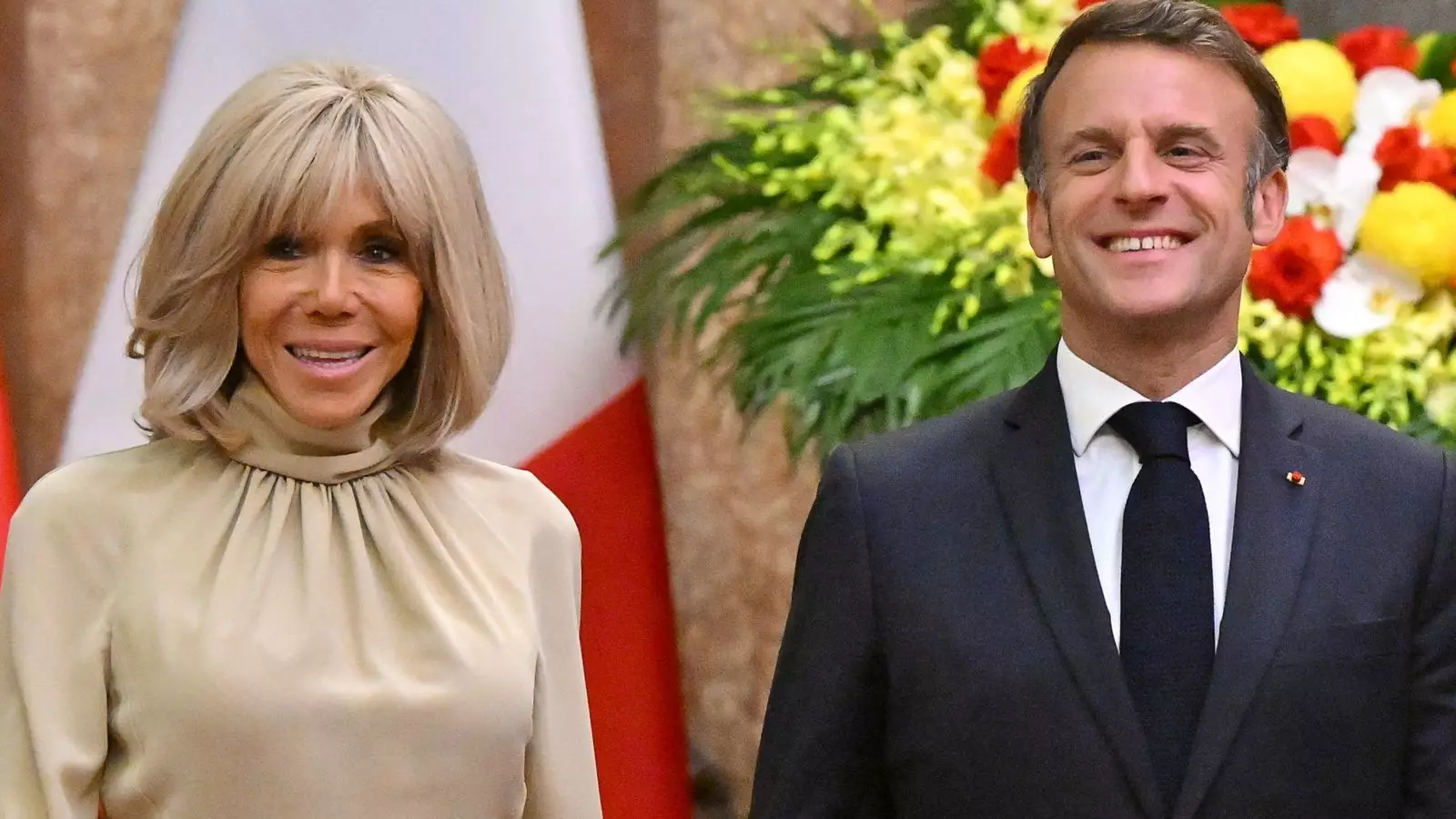The recent French state visit to Windsor signifies more than just a change of venue; it challenges traditional norms of diplomatic hospitality. Instead of the customary grandeur centered around Buckingham Palace, an intimate and strategically curated series of events have been orchestrated in Windsor—an act that speaks volumes about shifting diplomatic subtlety. The decision to host the Macron visit entirely in Windsor, along with the Prince and Princess of Wales personally greeting the French leaders on the tarmac, is a deliberate move that emphasizes personal touch over pomp. While some may herald this as a sign of modern diplomacy fostering genuine human connection, critics could argue that it diminishes the grandeur expected of such a high-profile event, reducing it to a more subdued, almost personal encounter.
This shift away from traditional formalities may be well-intentioned, aiming to underline the importance of bilateral relations with a touch of familiarity, but it risks undermining the weight of the occasion. State visits are symbolic gestures meant to display national pride, unity, and strength—values that risk diluting when reduced to cozy, less formal settings. The choice of Windsor, a historic royal residence, over the more prominent Buckingham Palace, could be seen as a missed opportunity to reassert Britain’s traditional imperial grandeur on an international stage. Instead, it hints at a desire to present a more relaxed, approachable image which, while commendable, may not be enough to offset the diplomatic gravity such events warrant.
The Overlooked Power of Royal’s Soft Diplomacy
The royal family’s engagement in diplomacy often straddles the line between tradition and innovation. The visit’s personal details—the viewing of Queen Elizabeth’s gift of a horse, the private homage at Queen Victoria’s carriage, and the invite to tour Windsor Great Park—are reminders that the British monarchy’s soft power remains a unique tool in fostering international relationships. These gestures, which draw upon centuries of royal history and symbolism, serve as potent diplomatic cues that money cannot buy or politics alone cannot achieve.
However, in centering these touches, there’s a risk of romanticizing diplomacy while neglecting the necessity for strategic substance. The reality is that diplomatic gestures without a clear, public strategic aim can become little more than pageantry. The visit’s emphasis on historical artifacts and personal connections, while fostering goodwill, should not overshadow critical discussions on pressing issues like climate change, security, and economic cooperation, which remain the true test of international relations.
Furthermore, hosting Macron in Windsor—a site associated with imperial history and tradition—could be perceived as an attempt to evoke Britain’s historical influence, but it also perpetuates a narrative that risks alienating the very audiences who question colonial legacies. The royal family’s hosting role, therefore, presents both an opportunity to redefine British soft power and a challenge to avoid nostalgic clutching to symbols that may no longer resonate globally.
The Shift in Centre-Stage: What’s Missing?
The decision to hold the state banquet and other key diplomatic events away from the grandeur of Buckingham Palace raises questions about the future of royal diplomacy. While the palace remains the traditional backdrop for state occasions, Windsor’s selection signals a willingness to experiment with more intimate venues. Yet, this pragmatism might come at the expense of spectacle—an essential tool in projecting a nation’s stature.
The absence of high-profile speakers and the lack of public visibility might limit the diplomatic impact. The public and international audience often gauge a nation’s credibility through spectacle and pageantry; without these, there’s a risk of diplomacy appearing diminished or less serious. Furthermore, the choice of Windsor over more iconic venues could be viewed as a missed chance to leverage the royal estate’s symbolic gravitas, which historically underscores the sovereignty and power of the monarchy.
The visit also highlights a broader paradox: in a world where diplomacy is increasingly driven by digital media, authenticity and personal connection matter more than ever. Yet, as this visit leans heavily into historical romance and personal touch, it may overlook the importance of messaging that resonates in the modern geopolitical arena. The Macron visit could have been an arena to showcase Britain’s leadership on global issues, but instead, it seems to rely heavily on tradition and personal relations—elements that, while charming, are insufficient on their own.
The Windsor-based French state visit embodies a cautious yet bold effort to redefine British diplomacy amid a changing world. While the personal, less formal approach offers a refreshing twist, it also raises concerns about diminishing the stature of such high-level diplomacy. The royal family’s role in soft power remains invaluable, yet it must evolve purposefully, balancing history’s weight with the need for strategic influence. If the royal monarchy plays its cards right, the Windsor visit could serve as a template for future diplomatic ventures—more intimate, more authentic, but still ultimately impactful. The crucial challenge lies in ensuring that this approach does not sacrifice the grandeur and strategic messaging essential to global diplomacy in the 21st century.

Leave a Reply